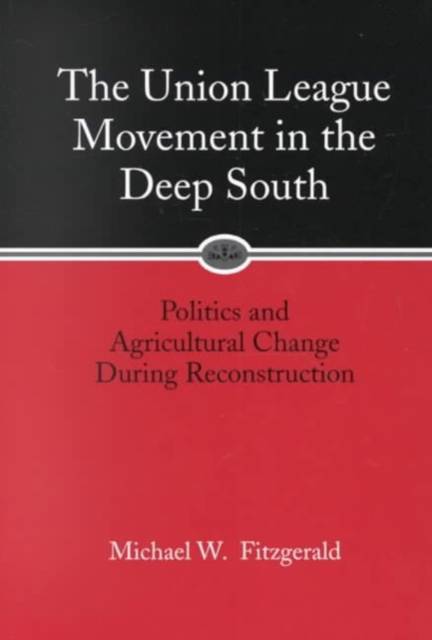
- Retrait gratuit dans votre magasin Club
- 7.000.000 titres dans notre catalogue
- Payer en toute sécurité
- Toujours un magasin près de chez vous
- Retrait gratuit dans votre magasin Club
- 7.000.000 titres dans notre catalogue
- Payer en toute sécurité
- Toujours un magasin près de chez vous
Union League Movement in the Deep South
Politics and Agricultural Change During Reconstruction
Michael W Fitzgerald
Livre broché | Anglais
53,45 €
+ 106 points
Description
Led by a coalition of blacks and whites with funding from congressional radicals, the Union League was a secret society whose express purpose was to bring freedmen into the political arena after the Civil War. Angry and resentful of the lingering vestiges of the plantation system, freedmen responded to the League's appeals with alacrity, and hundreds of thousands joined local chapters, speaking and acting collectively to undermine the residual trappings of slavery in plantation society.
League actions nurtured instability in the work force, which eventually compelled white planters to relinquish direct control over blacks, encouraging the evolution from gang labor to decentralized tenancy in the southern agricultural system as well as the emergence of the Ku Klux Klan. In this impressive work--the first full-scale study of the effect the Union League had on the politicization of black freedmen--Michael W. Fitzgerald explores the League's influence in Alabama and Mississippi and offers a fresh and original treatment of an important and heretofore largely misunderstood aspect of Reconstruction history.Spécifications
Parties prenantes
- Auteur(s) :
- Editeur:
Contenu
- Nombre de pages :
- 304
- Langue:
- Anglais
Caractéristiques
- EAN:
- 9780807126332
- Date de parution :
- 01-10-00
- Format:
- Livre broché
- Format numérique:
- Trade paperback (VS)
- Dimensions :
- 152 mm x 229 mm
- Poids :
- 403 g







